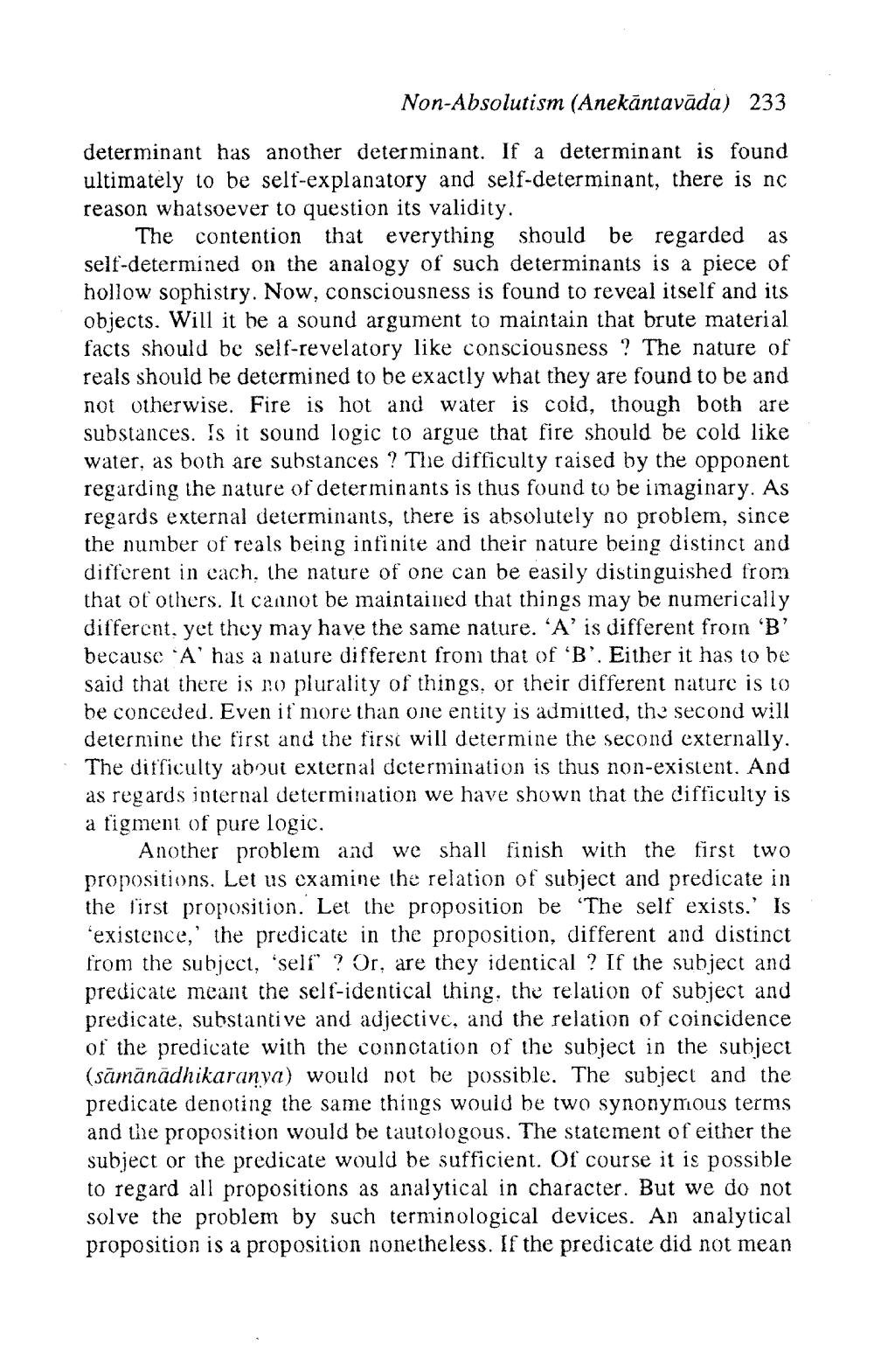________________
Non-Absolutism (Anekāntavāda) 233
determinant has another determinant. If a determinant is found ultimately to be self-explanatory and self-determinant, there is no reason whatsoever to question its validity.
The contention that everything should be regarded as self-determined on the analogy of such determinants is a piece of hollow sophistry. Now, consciousness is found to reveal itself and its objects. Will it be a sound argument to maintain that brute material facts should be self-revelatory like consciousness ? The nature of reals should be determined to be exactly what they are found to be and not otherwise. Fire is hot and water is cold, though both are substances. Is it sound logic to argue that fire should be cold like water, as both are substances ? The difficulty raised by the opponent regarding the nature of determinants is thus found to be imaginary. As regards external determinants, there is absolutely no problem, since the number of reals being infinite and their nature being distinct and different in each, the nature of one can be easily distinguished from that of others. It cannot be maintained that things may be numerically different, yet they may have the same nature. ‘A’ is different from 'B' because 'A' has a nature different from that of 'B'. Either it has to be said that there is no plurality of things, or their different nature is to be conceded. Even it more than one entity is admitted, the second will determine the first and the firsć will determine the second externally. The difficulty aboui external dctermination is thus non-existent. And as regards internal determination we have shown that the difficulty is a figment of pure logic.
Another problem and we shall finish with the first two propositions. Let us examine the relation of subject and predicate in the first proposition. Let the proposition be "The self exists. Is 'existence, the predicate in the proposition, different and distinct from the subject, 'self" ? Or, are they identical ? If the subject and predicate meant the self-identical thing, the relation of subject and predicate, substantive and adjective, and the relation of coincidence of the predicate with the connotation of the subject in the subject (sāmānādhikaranya) would not be possible. The subject and the predicate denoting the same things would be two synonymous terms and the proposition would be tautologous. The statement of either the subject or the predicate would be sufficient. Of course it is possible to regard all propositions as analytical in character. But we do not solve the problem by such terminological devices. An analytical proposition is a proposition nonetheless. If the predicate did not mean




